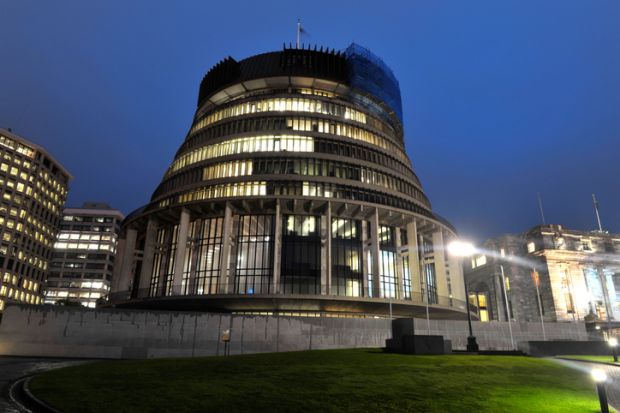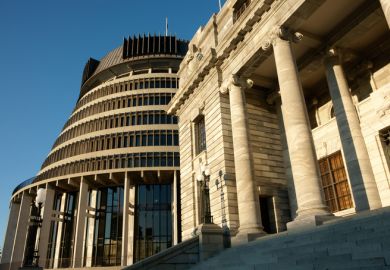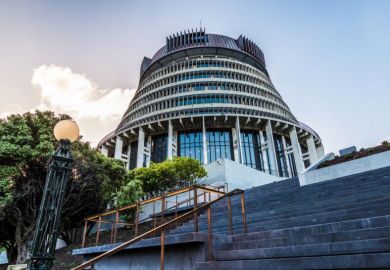New Zealand Labour’s emphatic election win, which is tipped to produce a single-party government for the first time in 25 years, could ease the “handbrake” on the return of international students.
But the removal of party political barriers to a reopening of borders will be “well and truly trumped” by New Zealanders’ nerves about international arrivals sparking fresh outbreaks of Covid-19, experts have said.
The 17 October election result has ended Labour’s coalition with the populist New Zealand First party, which failed to either win an electorate or attract 5 per cent of the national vote – a threshold that would have entitled it to a share of seats in the House of Representatives.
New Zealand First thrust Labour into minority government in 2017 by siding with Labour leader Jacinda Ardern against the incumbent National Party, which had won more seats. The minor party’s platform of curtailing immigration may have contributed to the continuing restrictions on students’ entry despite the country’s success in controlling the pandemic, particularly as New Zealand First leader Winston Peters was also foreign affairs minister.
His party had gone to this year’s election with a policy to “reset the international student market”, arguing that international education must not be used as a “back door” to immigration.
“Having Peters out of the equation means that anything to do with immigration becomes a wee bit easier,” said Richard Shaw, professor of politics at Massey University. “But it’s difficult to overstate quite how averse New Zealanders are to opening the borders. There is no partisan divide there whatsoever.”
The government departed slightly from its conservative border approach the week before the election, announcing its intention to allow 250 international postgraduate students back to complete their studies. But most of the thousands of students currently stranded offshore appeared unlikely to be admitted before mid-2021, and the government has temporarily stopped processing new student visas.
Professor Shaw said income from international students was an important component of higher education revenue. “I don’t see any indication of an alternative funding model in these fiscally constrained times,” he said. “There’s absolutely no way that this Labour government is going to alienate its newfound voters from the centre-right by significantly ramping up expenditure on subsidies for domestic students.”
Such a prospect was further dampened by the likely end of Labour’s formal alliance with its other coalition partner, the Green Party.
The Greens’ election policy included reviewing current funding “to ensure that subsidies are sufficient to meet real costs” and providing enough money to improve staff-to-student ratios and boost course availability in areas that had declined mainly because of lack of resources.
Pundits have speculated that Ms Ardern will maintain her coalition with the Green Party, but Professor Shaw said this was unlikely. “She doesn’t need them. I think she will have a parliamentary majority of five seats, which is really big by historic terms.
“She’s made it very clear that she’s going to govern for all New Zealanders, and that means she will remain right where she is, which is right in the centre. The heat that the Greens might have applied, particularly around immigration and subsidising public education, will have relatively little policy effect.”
Register to continue
Why register?
- Registration is free and only takes a moment
- Once registered, you can read 3 articles a month
- Sign up for our newsletter
Subscribe
Or subscribe for unlimited access to:
- Unlimited access to news, views, insights & reviews
- Digital editions
- Digital access to THE’s university and college rankings analysis
Already registered or a current subscriber?








